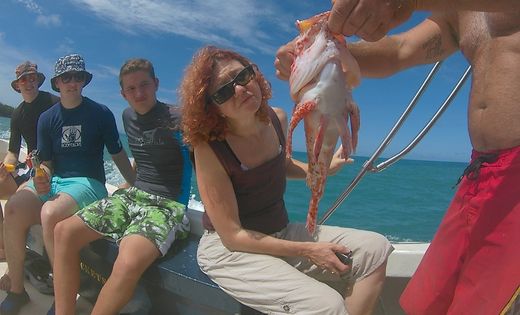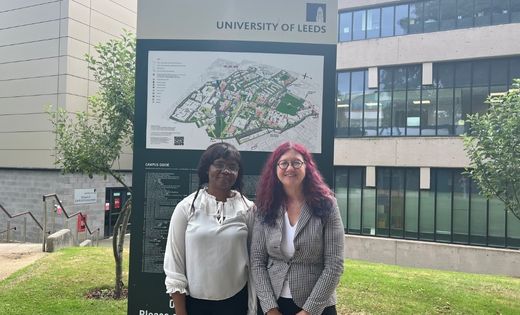Inside Track | Collaboration is crucial for our environment
In this Inside Track feature, Professor Selina Stead, Executive Dean of the Faculty of Environment, highlights how collaboration is crucial in working towards their vision for the future.

In 2020, Prince Charles – now King Charles III – laughed at the idea of sea cucumbers replacing our national dish of fish and chips in the UK. This flowed from a conversation about solutions to improve our national food security through innovations in sustainable food production. Timing was especially poignant – just one month later we went into a national lockdown to tackle the COVID-19 pandemic, where in some areas, shortages of supplies led to food insecurity.
As governments look to diversify food supplies, they must consider mariculture – farming animals and plants that live in the sea. With the UK population predicted to grow to 71 million by 2045, while agriculture is under pressure to shift to more environmentally friendly production that helps us reach net zero, seafood has an increasingly important role to play in providing nutrition and jobs to our island nation.
Let’s consider the facts:
- About 90% of the global fish stocks monitored by the United Nations Food and Agriculture Organisation (FAO) are fully or overexploited. In the UK, this figure is about 40%.
- Mariculture has the potential to produce six times more food from the ocean than is produced today.
- Land-based protein resources alone can’t feed a future global population of 10 billion.
- There’s a knowledge gap in how to achieve the unfulfilled potential of mariculture.
The facts point to mariculture being part of the solution to food security challenges.
 Professor Selina Stead researching mariculture
Professor Selina Stead researching mariculture
Going above and beyond
As we work to find and advocate for solutions to global challenges, everyone’s contribution matters – regardless of their role. When we collaborate well, everyone’s ideas, skills and perspectives can make us stronger and remove barriers to progress.
Since I joined Leeds nine months ago, I’ve received fantastic support to continue my mariculture research. It can be tricky transferring research funding between institutions when changing jobs, yet colleagues in our professional service teams have gone above and beyond to make this happen.
I’m particularly thrilled that my former PhD student, Dr Nwamaka Okeke-Ogbuafor, has managed to bring her fellowship to Leeds. Her work focuses on reducing hunger and poverty in Sierra Leone by assessing the opportunities for mariculture in vulnerable communities impacted by declining fish stocks.

Dr Nwamaka Okeke-Ogbuafor and Professor Selina Stead can continue to work on important research together, thanks to the efforts of professional services colleagues
Dr Georgi Robinson, another former PhD student of mine, has also brought her UKRI Future Leaders Fellowship to the University. Together, we’re working on a project to reuse and recycle nitrogen by converting it into high-value protein in the form of valuable deposit feeders, such as sea cucumbers, earthworms and marine worms.
We need to be innovative as we seek to protect and diversify our food supply, but it holds us back when we’re disconnected and working apart. I’m delighted that the University’s Further Together campaign is highlighting the crucial contributions to research – from a wide range of people – who need to be seen and celebrated.
Looking forward
So, what does progress look like for the Faculty of Environment?
Our aim is to co-create high-quality education and research with strategic partners to empower staff and students to respond to the call to arms to reach the United Nations Sustainable Development Goals by 2030.
We’ve summed up our vision in three words: ‘borderless environmental sustainability’. Delivering this ambition relies on close working between teams so collaboration is without frontiers.
We’re focusing our efforts on making the University a global leader and collaborator in climate-smart resilience, equity, food security and sustainable transport. Inclusive collaboration across teams is core to our success. This will enable us to use interdisciplinary systems, science and expertise to produce solutions to issues and have a positive impact on our world.
Just as we must nurture and protect our environment, we must continue to give colleagues the encouragement and support they need to come up with imaginative solutions to the world’s problems.
So, anyone for sea cucumbers?!
Posted in: My WeekUniversity newsResearch and innovation